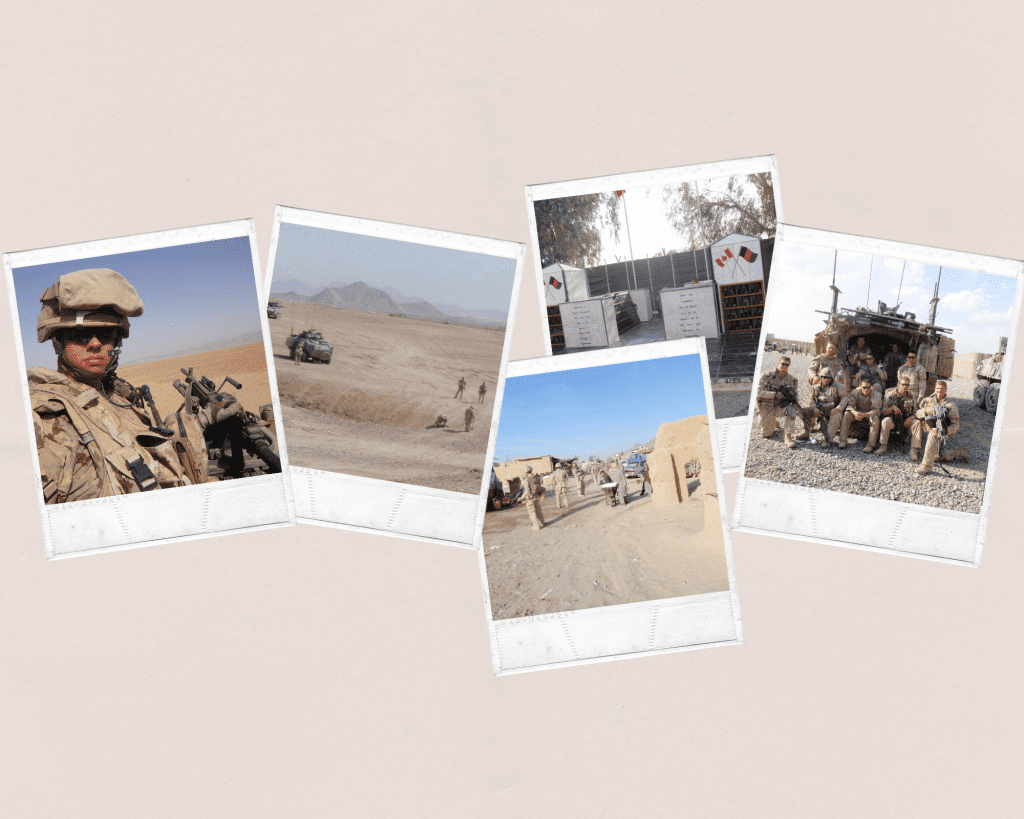- 2024-07-11
- Blog
Making sense of why I am like I am: The journey of adult children of Veterans

Between my previous role providing peer support to Families and my own experience as the parent of four adult children of Veterans, I have observed both the resilience and the hardships that seem part of the experience of being a military brat — and I am myself a proud military brat.
During my early days of as a peer supporter, I met with the daughter of a First World War Veteran. She was in her seventies and wanted to better understand her father’s posttraumatic stress disorder (PTSD) and how it impacted her childhood and adulthood. I didn’t have any resources to offer her as an adult, so I brought her the only thing I had access to: a children’s book titled Why Is Daddy Like He Is?
I vividly remember watching her read the short story in the coffee shop. It felt as if I saw her transform into a little girl again right before my eyes as she broke down in tears. I wished I had more to offer her.
Today not much has changed — resources, support and knowledge of how adult children can be shaped by their parent’s military service are few and far between.
The children whose parents served in the Canadian military during the war in Afghanistan and the height of the peacekeeping era in the 1990s and 2000s are now adults. Few research studies have directly engaged these adult children to explore the long-term impacts of being raised by a Veteran with trauma. As a result, information and understanding of this demographic remain scarce.
This is why I am excited to play a part in changing things for others, by being co-Principal Investigator (co-PI) on a study about adult children of Veterans. The role of a co-PI is to share responsibility with the other PIs in the development, direction, management and execution of the research project.
Something I appreciate immensely about working at the Atlas Institute is intentional integration of lived experience into everything we do. Atlas continues to set the bar high and — in my opinion — is breaking ground by adopting the same methodology of having a co-PI with lived experience not only in this study, but in several other research projects as well.
This study on the experience of adult children of Veterans is a joint project with Dr. Deborah Norris. I appreciate her willingness to explore an unconventional model that includes not only a co-PI with lived experience and but also a lived experience advisory group that will help guide the study. We have identified a group of five adult children who bring a diverse representation of experiences. The youngest participant is 19 years old and the oldest is in their seventies. The group came together in May 2023 for its inaugural meeting. Incidentally, the two members of Dr. Norris’s research team who are supporting this study are also adult children of Veterans!
The co-PI model has served us well so far. I have long admired the work of Dr. Norris, and she has made me feel respected for my acquired knowledge and lived expertise with regards to military and Veteran Families. For that reason, I entered this partnership feeling that the academic perspective and my knowledge of lived experience as a Family member were of equal importance to the project’s success. This understanding that each experience has an important role to play will be key throughout the study’s design and execution, and in the dissemination of findings that will be relevant and meaningful to the Veteran Family community.
Working in tandem, we have mutually identified the general direction of the study, with the lived experience co-PI took the lead in identifying potential advisory group participants. While the project is in early stages, I am excited and hopeful about the creation of this co-PI model. My hope is that Veterans and Families will see themselves as part of the research process from inception, to creation, launch, and analysis and to understand how the information from research is shared. That they are more than just the subject of research. Most Veterans and Families don’t see themselves as advocates and don’t believe they have the power to influence change. But by becoming involved and being open to sharing their experiences to inform research outcomes, every individual voice can influence trajectory.
I anticipate we will learn lessons along the way and that using a new model could pose its own unique challenges. But I truly believe that having lived experience engaged in this foundational way will result in a superior outcome, since the community of adult children of Veterans will have some ownership and influence on the research about them.
— Laryssa
Laryssa Lamrock
National Strategic Advisor – Families
Atlas Institute for Veterans and Families
Are you a Veteran or Family member with a story to tell? Get in touch with us and you may be featured on this blog!

